
Pregnancy and insomnia
Can't fall asleep ? We'll tell you about natural solutions to fall asleep while keeping your baby safe and sound.
Lire la suiteInspired by yoga, hypnotherapy and meditation, developing Dodow immersed us into a deep study of alternative methods for fixing health problems; sleeping was just a first step.
We would like to share with you our studies, and help you discover health and well-being advice, that are easy to put into practice.
What do you need to eat to grow a healthy fetus? The first myth to dispel is that you don't need to eat twice as much now that you're eating for two. During the first trimester, you only need 150 extra calories per day, and during the second and third trimester, 350 calories. To give you a ballpark idea, 350 calories is about 100g of pasta. Pregnancy insomnia and you don't even get to compensate with food... tough.
Now that you're taking care of someone else, the rules for a healthy diet are even more relevant. The good thing is none of this is new, if you've been eating right you shouldn't have to change much, however be careful to not skip any meals or snack on things randomly. You might suffer from deficiencies, feelings of exhaustion, or an excess of fast-acting sugar.
Eat three full meals a day, morning noon and night, preferably with 5 fruits and vegetables while having a bit of everything (while respecting a healthy diet). If you're still hungry, one or two snacks a day are enough: you can take bananas with you in your bag (and not just bananas covered in white chocolate and dipped in caramel, we mean normal bananas, with nothing on top, hardcore. Don't let anybody tell you you ain't a warrior.)
Other ideas for snacks: a yogurt with muesli or whole fruit, dried fruit like apricots or figs (they have magnesium that will help you stay energetic), almond paste (it's full of protein)...
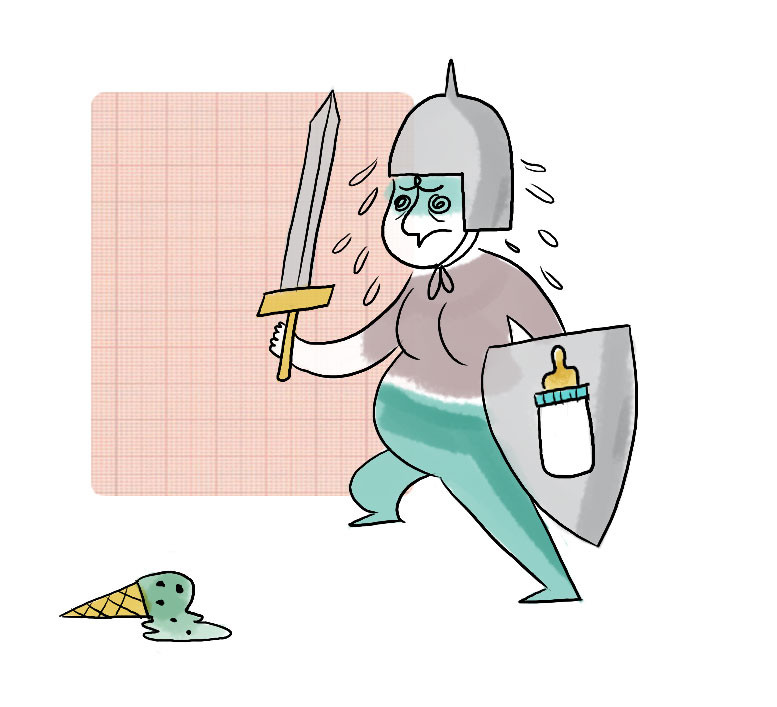
To stay hydrated, you must drink at least 1,5 liters per day, preferably mineral water or fruit juice (obviously, no soft drinks. Actually, never soft drinks.) By fresh fruit juice, we don't mean juice cartons from the supermarket, we mean actual freshly pressed fruit juice. To vary the taste and insure quality, the best thing is to invest in a cold pressed juicer. It will be useful even after your pregnancy to make fruit juice and vegetable juice (organic, obviously) to get all the nutrients and benefits.
Ginger prevents you from getting nausea during the first trimester, tones your muscles and your digestive system all the while allowing you to relax. However, if you're already taking an anti-coagulant, forget it! You could end up bleeding much more than normal.
This plant from South Africa accumulates many virtues such as: it helps you relax, it's full of vitamin C and micro-nutrients, has no theine or tannin and is an antioxidant. If you like the taste of rooibos, it could become your new evening herbal tea! Unlike tea, rooibos herbal tea is exceptional in that it doesn't dehydrate you.
Careful about this herbal tea: it needs to be organic citrus rinds, meaning without pesticides. Enjoy this hot beverage filled with vitamin C.
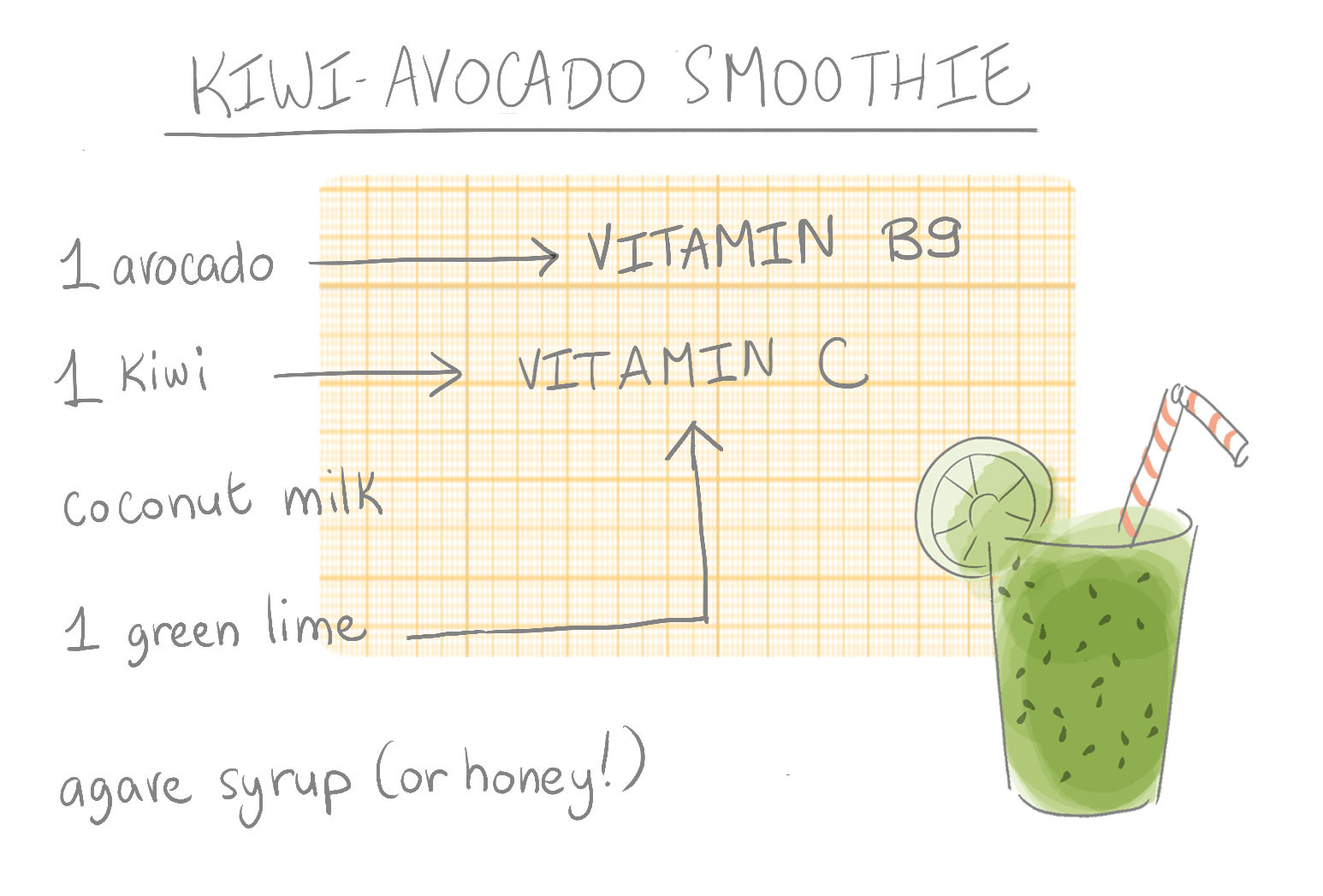
Vitamin B9 is also called folic acid. It is necessary to build the fetus' nervous system, and it can be found in cabbage, spinach, salad, lettuce, and broccoli. Green vegetables also have the advantage of being full of magnesium, which should prevent muscle cramps. To prevent cramps you can also eat dried vegetables (white beans, lentils, split peas) and nuts.
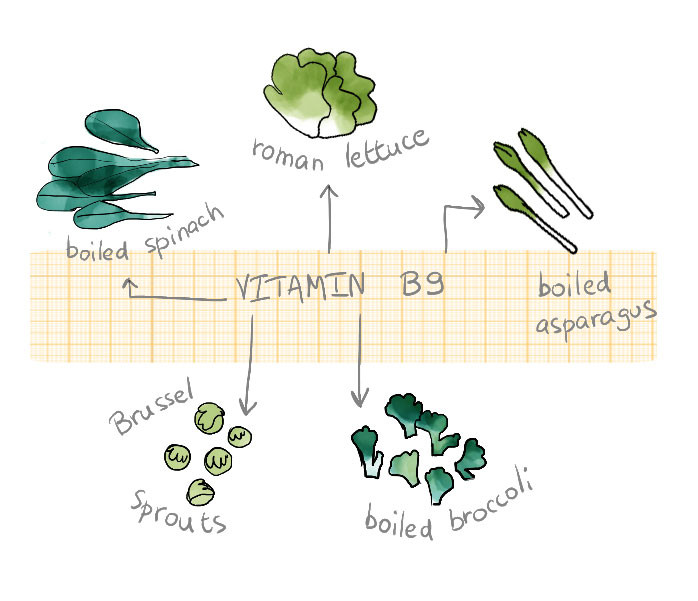
Vitamin C protects you and your baby from infections and makes the absorption of iron and collagen by your body easier. Collagen is used to maintain your body's tissues (placenta, skin, but also bones even if it's not a tissue).
Eat one citrus fruit (orange, grapefruit, lemon...), a kiwi or strawberries with a meal full of protein to help your body assimilate vitamin C well. If you eat the citrus with the rind, be careful to select organic fruit or to wash them diligently to remove all pesticides. You can also find vitamin C is some aromatic herbs like coriander.
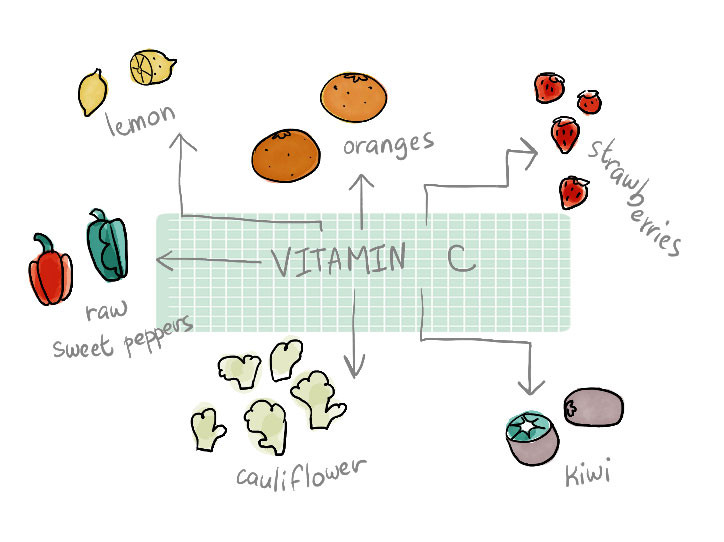
Omega 3 are necessary for the baby to transport glucose towards his brain and build neurons. They are also the essential components for the development of the nervous system and vision. For mom, omega 3 will put you in a good mood and according to a study from the university of Kansas could delay premature births.
Omega 3 are found in fatty fish (mackerel, sardines, herring...) but also salad dressing (olive oils, etc), some vegetables (spinach, lamb's lettuce, cabbages) and all nuts.
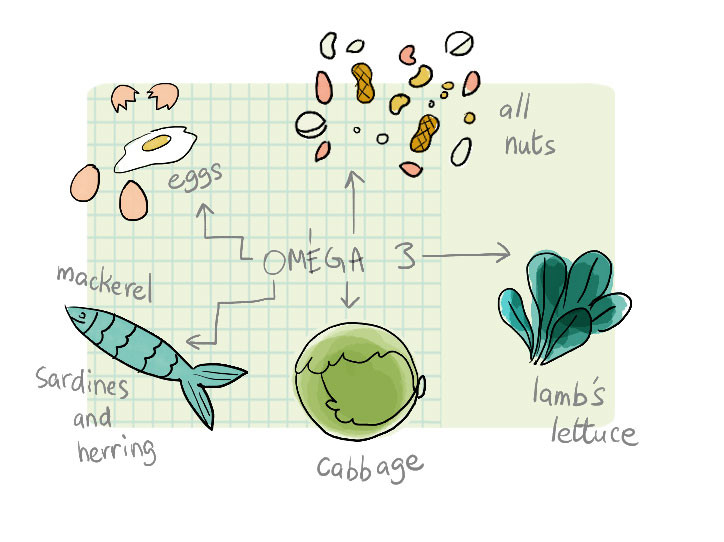
You need protein so that your baby can have cellular membranes, muscles, and good immune defenses. If you have iron deficiencies, now that you eat for two you could suffer from anemia, which could quickly become an invitation for all sorts of infections.
To prevent fainting randomly, here's the menu: lentils, fava beans, chick peas, cashew nuts, almonds, raisins, and spinach (spinach really has a lot of useful stuff). Meat has iron but also a lot of protein, obviously: chicken is a white meat that you can mix with nearly everything and put in a salad or sandwich, and you can have your pick of red meat and eggs as long as they are well cooked. However, here at Livlab we think it's better to eat alternatives to meat, as there are many other ways to add iron to your diet and eating meat is not ethically responsible. To avoid heavy sauces (which are potentially full of salmonella), prefer cooking our meat in the oven, steaming it, or grilling it.
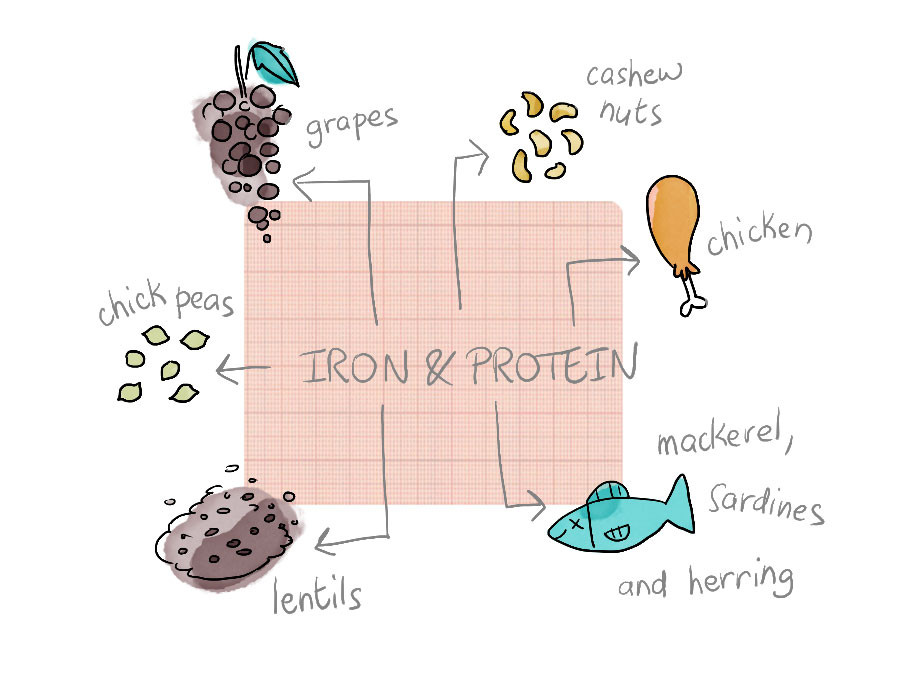
They're useful to make all those salads that you're starting to eat all the time and they're essential for a balanced and energizing diet. Specifically: whole-wheat bread, whole-wheat pasta, brown rice, whole grains and potatoes are a good idea. On the other hand, no fries bathed in oil or super sweet biscuits you're desperately trying to qualify as "starches".
Bon appétit !
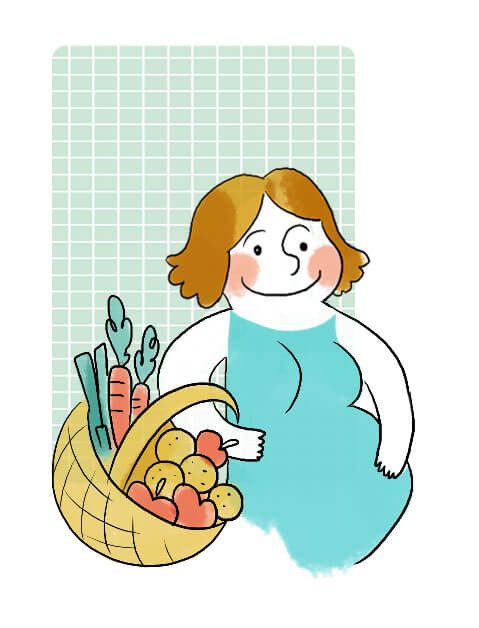
On the same topic:
Did you know? You can do yoga while pregnant!
Worried about what you shouldn't while pregnant eat? Check out THIS list!
Learn cardiac coherence to slow your breathing!
Find out which sleeping position suits you best while pregnant